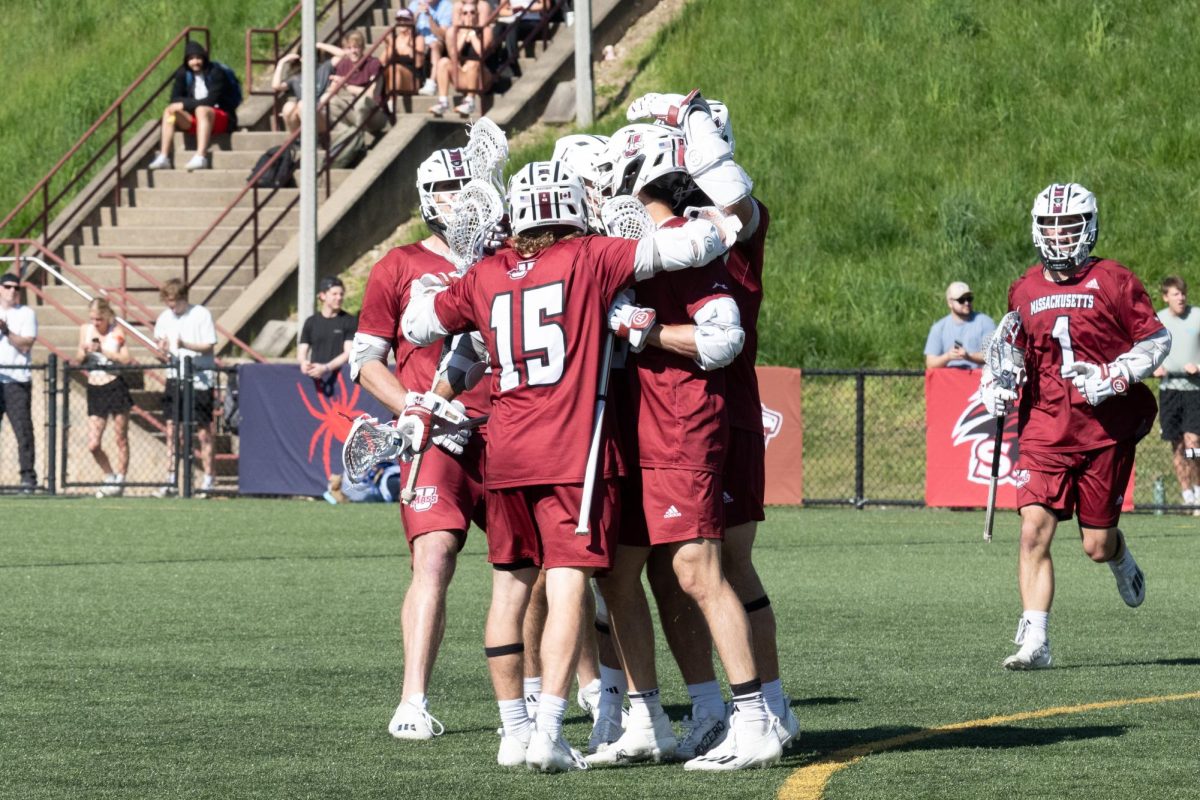An estimated 600 people, varying in age and cultural background, turned out for last weekend’s National Haitian Student Conference at the University of Massachusetts. This year marked the first time a public university has hosted the three-day event.
The Haitian Student Conference is a yearly event that seeks to edify, celebrate and explore the Haitian culture and society. The conference originated in 1997 as an event solely for colleges in New York City. Since then, it has grown to one that is attended by students, scholars, professionals and celebrities from around the world.
“It was really phenomenal,” said Frantzlyne Monestime, president of the Haitian-American Student Association (HASA). “I’ve never seen it [the Student Union Ballroom] so packed. We pulled it off with flying colors.”
The sixth annual conference, which was held from April 4 to 6, was entitled “Blood, Sweat and Tears – The Spirit of Survival.” Its theme was symbolic for many reasons, explained HASA secretary Michelle Monestime.
“The Haitian people as a whole got their independence through blood, sweat and tears, the spirit of survival. All over the world it takes blood, sweat and tears for Haitians to survive the struggles they face. And we came to find out over the weekend that it took us all blood, sweat and tears to get through the entire conference.”
This weekend’s itinerary consisted of workshops, speeches, presentations, musical performances, award ceremonies and more. Special guests for this year’s conference included hip-hop artist and Grammy winner Wyclef Jean, film director Jonathan Demme and nationally acclaimed Haitian motivational speaker Rene Godefroy.
Michelle Monestime said an important issue to address over the weekend was that many Haitian-Americans deny their heritage today.
“They just refer to themselves as African-Americans,” she said.
A goal of hers was to have Haitian-Americans take pride in where they come from and claim their social identity.
Having Wyclef as a special guest for the conference took little effort on HASA’s part. Wyclef contacted the group during the planning stages of the event to express his interest in participating. His focus would not be to perform as a world-famous artist, but to discuss his role as a Haitian-American in today’s society.
Wyclef and his crew were described as down-to-earth, polite, respectful, accessible and even thankful. On Saturday evening, while the conference attendees were waiting for dinner to be served, Wyclef held a spontaneous jam session in the Campus Hotel lobby. And one HASA member said that while Wyclef was eating lunch one day in the Campus Center, he encouraged fans to ask for his autograph, saying that he “won’t bite.”
“He’s just a really cool guy,” said HASA Vice President Marvin Alcide.
Frantzlyne Monestime’s most memorable event from the weekend-long conference was the “Roles of Women Workshop.” The workshop featured three prominent black women including Sophia Pasquis, a past star on MTV’s hit show “Road Rules.” The purpose of the event was to create an inspirational, interactive environment for the discussion of women’s successes in the Haitian community.
Alcide was most impacted by the presentation of Demme’s documentary on the life of Jean Dominique, a Haitian activist and radio host who was killed for his political views. Dominique’s wife spoke about her husband’s life as a political activist.
“It was so powerful to hear her talk about her husband,” Alcide said. “It was like he was living through her.”
Alcide recognized that it would take more than three days to make any difference in the situation in Haiti. The purpose of the conference, he said, was to inspire people, to raise awareness and to be a catalyst for change.
“Only through unity can we solve problems prevalent in Haiti,” he said.
The members of HASA expressed their extreme thanks to everyone who offered support, contributed time and played key roles to organize and sponsor this event from the beginning. They had been planning the conference since the spring of 2001, said Alcide.
“We had a strong team with us. The RSOs banded together to help us out and we got a lot of outside help from volunteers, many who weren’t even from the Amherst area,” Frantzlyne Monestime said. “People whose job it was to help us didn’t help us as much as those from the outside who were supposed to be there just for support.”
“I’m happy about the turnout. It was great seeing all types of people leave with so much knowledge because our number one objective was to teach the community something that they don’t already know.”
Attendees ranged from high school students, to residents of North Dakota, to a UMass alum from the graduating class of 1972, according to Monestime.
All three HASA members plan to participate in the conference as alumni after they graduate. Recognizing the contributions of current alumni, Alcide said “it’s because of them and their experiences that we were able to do this.”
The location for next year’s National Haitian Student Conference, which will mark the 200-year anniversary of Haiti’s independence, is yet to be determined. In the past, universities have bid for the chance to host the event at the end of each year’s conference. Development of an online method for applying to host the conference, which includes proposal submissions, is currently in the works. This enables universities whose representatives cannot attend the conference one year to be eligible to host it the next.






